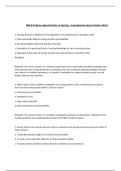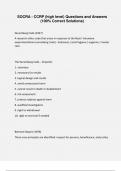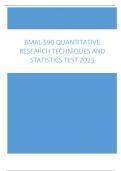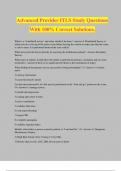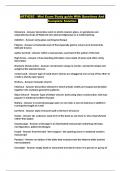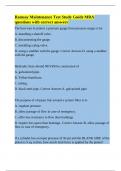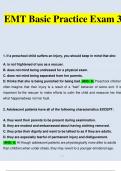🧠
Week 1: Lecture
1. introduction to the course
learning goals
make use of algorithms
algorithms impacts in our lives and research purposes
evaluate the effects of algorithms in real life
course timeline
different topic each week
requires literature
essay and exam
1 individual assignments
30% - 12:00 May 9, 2022, submit via canvas, NO LATE
SUBMISSION
there is a given statement and you will agree/oppose with that
statement
structure: MUST FOLLOW
Introduction
Week 1: Lecture 1
, argument 1
argument 2
conclusion
references
required information: front page
800 words (more on canvas)
1 final exam - 70%
30 MC question, 3 open question
closed book exam
content: all lectures and course literatures
2. introduction to the algorithmic
video
definition
encoded procedures for transforming input data into a desired outputs
based on specified calculations
algorithmic power
prioritize: making order list: emphasize or bring attention to certain things
at the expenses of others
classification: categorize: categorize particular entity to given class by
looking at any number of its features
association: finding links: association decisions mark relationships
between entities
filtering: include or exclude certain things based on rules/criteria; often
take pioritizing, classifications
⇒ rule-based algorithms:
based on rules or steps: have to define in advanced
typically IF -THEN statements
quick, easy to follow (plain text only), but it’s only applicable to specific
conditions (different platform require different algorithms)
Week 1: Lecture 2
, ⇒ machine learning algorithms
learn by themselves, based on statistical models rather than deterministic
rules
trained based on a corpus of data from which they may learn to make certain
kind of decisions without human oversight
flexible and amenable to adaptations, however, it need to be trained (large
set of data to learn through “patterns”, black-box (not always transparency))
Example: Facebook’s DeepFace algorithms
facial recognition: identify human faces, 97% accuracy
but it can be sold to businesses and authoritarian regimes
recommendation system
recommend user certain things
decide which content to show to whom based on certain criteria →
difference in appearance between A and B although in the same app
why
avoid choice overload but select few of them
provide relevant experience to user’s preferences - do not to find
manually but technology can do
techniques
content-based filtering
recommend things based on similarities between items
simple id behind
collaborative filtering
based on item that other user with similar tastes linked in the past
“top 10 in [country]”
platform do not have enough data to know about you but using other
sources of data
hybrid filtering
combination of 2 above
Week 1: Lecture 3
, how people perceive algorithms
appreciation
people rely and prefer algorithmic decision over human decision
even they know the faults of algorithms
despite blindness faith in algorithms process (blackbox)
automation bias
human tend to over-rely on automation (blind faith in information
from computers)
…
aversion
tendency to prefer human decision over algorithmic decisions, even
the human decisions are clearly inferior
people aversion bcs they don’t understand the algorithmic process
…
⇒ nuance view: depend on other factors: type of tasks (machine task: prefer
AP, emotional-relevant task: prefer human decisions); level of subjectivity in
decisions; individual characteristics; etc.
3. literature this week: algorithmic persuasion framework in online communication:
conceptualization and a future research agenda - Brahim Zouhali
3 aims
define the concept of AP
propose the APF to understand the role of algorithms in persuasive
communication
present a future research agenda based on insights derived from this
framework
algorithmic persuasion
deliberate attempt by a persuader
influence the beliefs, attitudes and behaviors of people through online
communication: can be short/long terms, intended/unintended,... through
online platforms, devices,...
Week 1: Lecture 4
Week 1: Lecture
1. introduction to the course
learning goals
make use of algorithms
algorithms impacts in our lives and research purposes
evaluate the effects of algorithms in real life
course timeline
different topic each week
requires literature
essay and exam
1 individual assignments
30% - 12:00 May 9, 2022, submit via canvas, NO LATE
SUBMISSION
there is a given statement and you will agree/oppose with that
statement
structure: MUST FOLLOW
Introduction
Week 1: Lecture 1
, argument 1
argument 2
conclusion
references
required information: front page
800 words (more on canvas)
1 final exam - 70%
30 MC question, 3 open question
closed book exam
content: all lectures and course literatures
2. introduction to the algorithmic
video
definition
encoded procedures for transforming input data into a desired outputs
based on specified calculations
algorithmic power
prioritize: making order list: emphasize or bring attention to certain things
at the expenses of others
classification: categorize: categorize particular entity to given class by
looking at any number of its features
association: finding links: association decisions mark relationships
between entities
filtering: include or exclude certain things based on rules/criteria; often
take pioritizing, classifications
⇒ rule-based algorithms:
based on rules or steps: have to define in advanced
typically IF -THEN statements
quick, easy to follow (plain text only), but it’s only applicable to specific
conditions (different platform require different algorithms)
Week 1: Lecture 2
, ⇒ machine learning algorithms
learn by themselves, based on statistical models rather than deterministic
rules
trained based on a corpus of data from which they may learn to make certain
kind of decisions without human oversight
flexible and amenable to adaptations, however, it need to be trained (large
set of data to learn through “patterns”, black-box (not always transparency))
Example: Facebook’s DeepFace algorithms
facial recognition: identify human faces, 97% accuracy
but it can be sold to businesses and authoritarian regimes
recommendation system
recommend user certain things
decide which content to show to whom based on certain criteria →
difference in appearance between A and B although in the same app
why
avoid choice overload but select few of them
provide relevant experience to user’s preferences - do not to find
manually but technology can do
techniques
content-based filtering
recommend things based on similarities between items
simple id behind
collaborative filtering
based on item that other user with similar tastes linked in the past
“top 10 in [country]”
platform do not have enough data to know about you but using other
sources of data
hybrid filtering
combination of 2 above
Week 1: Lecture 3
, how people perceive algorithms
appreciation
people rely and prefer algorithmic decision over human decision
even they know the faults of algorithms
despite blindness faith in algorithms process (blackbox)
automation bias
human tend to over-rely on automation (blind faith in information
from computers)
…
aversion
tendency to prefer human decision over algorithmic decisions, even
the human decisions are clearly inferior
people aversion bcs they don’t understand the algorithmic process
…
⇒ nuance view: depend on other factors: type of tasks (machine task: prefer
AP, emotional-relevant task: prefer human decisions); level of subjectivity in
decisions; individual characteristics; etc.
3. literature this week: algorithmic persuasion framework in online communication:
conceptualization and a future research agenda - Brahim Zouhali
3 aims
define the concept of AP
propose the APF to understand the role of algorithms in persuasive
communication
present a future research agenda based on insights derived from this
framework
algorithmic persuasion
deliberate attempt by a persuader
influence the beliefs, attitudes and behaviors of people through online
communication: can be short/long terms, intended/unintended,... through
online platforms, devices,...
Week 1: Lecture 4


